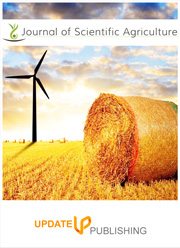Characterization of some food formulation functional properties of flour processed from roasted African breadfruit (Treculia africana) seeds
DOI:
https://doi.org/10.25081/jsa.2017.v1.49Keywords:
African breadfruits, flour, optimization, functional properties, industrial applicationAbstract
This study used Response Surface Methodology was used to roast, identify and characterize the optimum values of functional properties of African breadfruit (Treculia africana) seed flour processed for industrial applications. The central Composition Rotable Design of treatment variables at 3 process variables (Roasting temperature RT, Roasting Time RM, and feed quantity FQ) and 5 process levels (-1.682, -1, 0, 1, 1.682) was used to optimize bulk density water and oil absorption capacities, gelation and emulsion capacity of the produced flour. Functional properties of the flour increased above the value of control and relative to process treatment. The effect of roasting temperature was significant (p < 0.05) for bulk density, gelation and emulsion capacity. Roasting time and feed quantity significantly (p˂0.05) influenced water absorption and emulsion capacities of the flour. Optimum values were bulk density 0/79 g/cm3, water absorption capacity 4.00ml/g, oil absorption capacities 2.90m/g, gelation 8.92 w/v. The unified optimum values of the functional properties occurred at process treatment combination of 126.360C, 45.85min and 505.09g, respectively for temperature, time and quantity. Processing African breadfruit seeds into flour at the optimal point will enhance its usefulness in industrial applications were functional properties of flour are of processing important.



 .
.